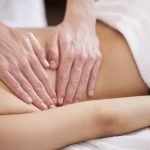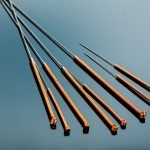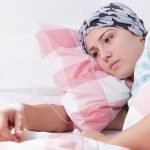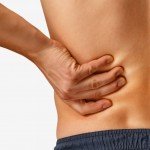Bacterial Microbiome Functions as Intestinal Pacemaker
Node Smith, ND
The Pace of the Microbiome
The microbiome may actually help the peristaltic function of the gastrointestinal tract. Very interesting research this week at Kiel University has shown that bacterial colonization of the intestinal tract does play a definite role in controlling motility through peristalsis.1 It is well acknowledged that the bacterial biome inside the intestine is crucial for proper digestion, and gut function. Mental health and chronic disease also are being shown to have their associations with disrupted bacterial growth. This study may help elucidate some of the mechanics that surround specific gastrointestinal complaints, such as the constipation and diarrhea commonly accompanying irritable bowel syndrome.
Bacterial Colonization may Play role in the activation of Contractile Tissue
The study looked at how bacterial colonization may have a role in the activation of contractile tissue. Pacemaker cells exist in the nervous system, that are spontaneously activated on a predetermined rhythmic basis and create muscle contraction. This is how the heart beats. The same is true in the gastrointestinal tract, where these pacemaker cells cause the smooth muscle of the gut to contract and move food along toward the colon, and out of the body; obviously a crucial element in the body’s innate detoxification system.
How Does Bacteria Impact this Pacemaker Phenomenon?
The interesting part of the study was that it looked at how bacteria impact this pacemaker phenomenon in the freshwater polyp Hydra, a simple organism that actually has no bowel. The entire body cavity of the Hydra functions like a digestive tract – the tissue surrounding the cavity provides the same peristaltic contractions seen in the human bowel. Two groups of Hydra were analyzed. One, had normal bacterial colonization, the other had its microbiome removed using an antibiotic cocktail.
Germ-free Polyps showed a Decrease in Body Contractions
The germ-free polyps showed a decrease in body contractions by about 50 percent. There was also disruption in their rhythm of movement and the periods between the contractions were elongated. The conclusion was that the peristaltic movements were compromised by the absence of bacterial colonization – a microbiome.
Researchers Noticed Something else when they Restored Bacterial Colonies to the Polyps…
When the researchers restored the bacterial colonies to the polyps they noticed something else. Adding individual bacterial strains back into the Hydra, did nothing to the contractions. Only when all 5 of the most common bacterial species were added back were the contractions impacted. However, even then they were not fully normalized.
Researchers Restored Normal Rhythm When Using an “Extract Produced by Colonizing Bacteria”
The researchers also were able to bring the contractions back to more normal rhythm using a “extract produced by the colonizing bacteria.” That sounds a lot like a Hydra fecal microbiota transplant. The final conclusion was that only the natural Hydra microbiome can play a significant pacemaker role in peristalsis. Even though this research was done on Hydra, it does support exactly what predominant human microbiome research is finding.
Source:
- Andrea P. Murillo-Rincon, Alexander Klimovich, Eileen Pemöller, Jan Taubenheim, Benedikt Mortzfeld, René Augustin, Thomas C. G. Bosch. Spontaneous body contractions are modulated by the microbiome of Hydra. Scientific Reports, 2017; 7 (1) DOI: 10.1038/s41598-017-16191-x
Image Copyright: <a href=’https://www.123rf.com/profile_juangaertner’>juangaertner / 123RF Stock Photo</a>
 Node Smith, ND, is a naturopathic physician in Portland, OR and associate editor for NDNR. He has been instrumental in maintaining a firm connection to the philosophy and heritage of naturopathic medicine among the next generation of docs. He helped found the first multi-generational experiential retreat, which brings elders, alumni, and students together for a weekend camp-out where naturopathic medicine and medical philosophy are experienced in nature. Four years ago he helped found the non-profit, Association for Naturopathic ReVitalization (ANR), for which he serves as the board chairman. ANR has a mission to inspire health practitioners to embody the naturopathic principles through experiential education. Node also has a firm belief that the next era of naturopathic medicine will see a resurgence of in-patient facilities which use fasting, earthing, hydrotherapy and homeopathy to bring people back from chronic diseases of modern living; he is involved in numerous conversations and projects to bring about this vision.
Node Smith, ND, is a naturopathic physician in Portland, OR and associate editor for NDNR. He has been instrumental in maintaining a firm connection to the philosophy and heritage of naturopathic medicine among the next generation of docs. He helped found the first multi-generational experiential retreat, which brings elders, alumni, and students together for a weekend camp-out where naturopathic medicine and medical philosophy are experienced in nature. Four years ago he helped found the non-profit, Association for Naturopathic ReVitalization (ANR), for which he serves as the board chairman. ANR has a mission to inspire health practitioners to embody the naturopathic principles through experiential education. Node also has a firm belief that the next era of naturopathic medicine will see a resurgence of in-patient facilities which use fasting, earthing, hydrotherapy and homeopathy to bring people back from chronic diseases of modern living; he is involved in numerous conversations and projects to bring about this vision.










